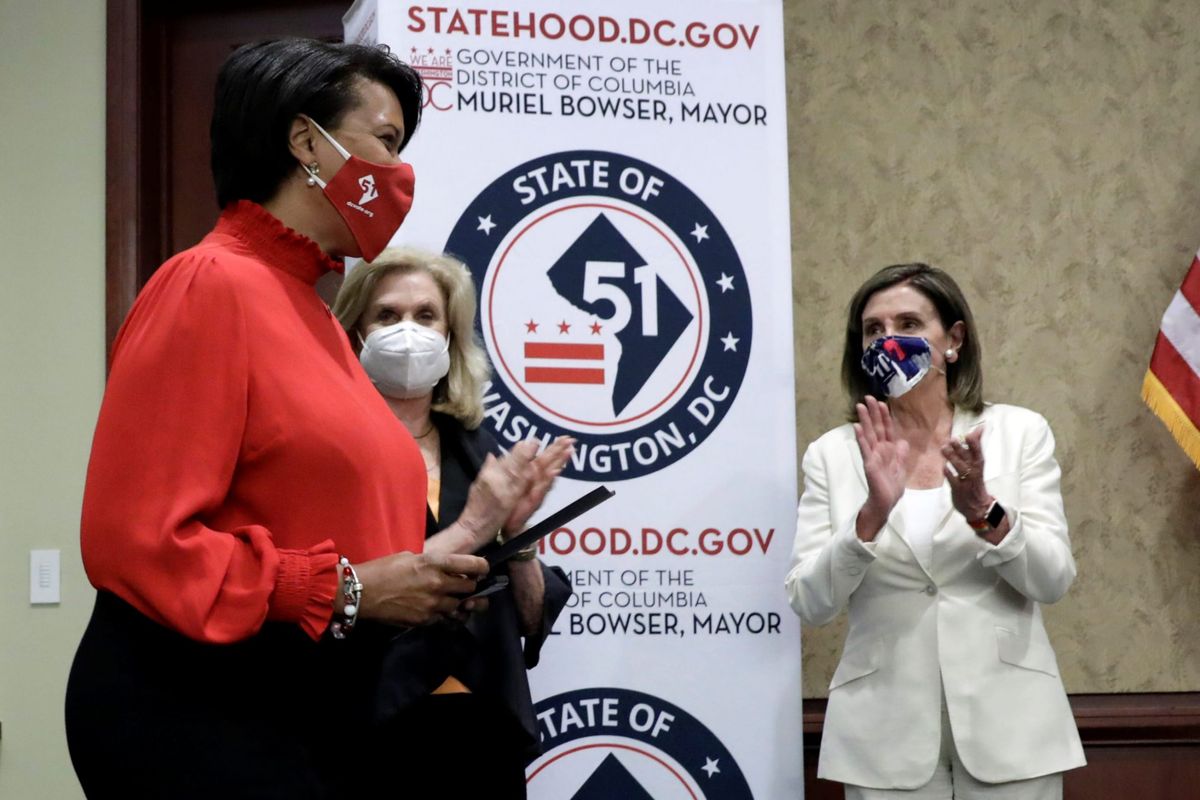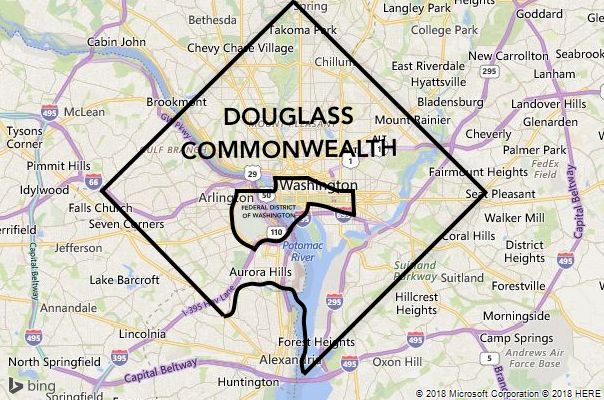US House approves bill to make DC the 51st state

A few minutes every morning is all you need.
Stay up to date on the world's Headlines and Human Stories. It's fun, it's factual, it's fluff-free.
On Friday, Democratic-led House of Representatives passed the Washington, D.C. Admission Act (H.R. 51). The bill, if enacted, would make Washington, DC the 51st state in the United States.
The bill would create a new state called Washington, Douglass Commonwealth, named after Frederick Douglass – an African American slavery abolitionist.
The bill encompasses the city’s current territory excluding its federal buildings such as the White House, the Supreme Court, the Capitol Building and the National Mall, all of which would remain under congressional jurisdiction.

The bill was introduced by Washington, DC’s only non-voting House Delegate Eleanor Holmes Norton, and passed largely along party lines by a vote of 232-180. Representative of Minnesota Colin Peterson was the only Democrat voting against the bill along with Republicans.
According to the bill, the new state – where the majority of voters are registered Democrats – would be represented by two senators and its house representative would become a voting member.
In a speech on the House floor before the vote, Norton said, “The United States is the only democratic country that denies both voting rights in the national legislature and local autonomy to the residents of the nation’s capital."
Norton added that although “the district pays more federal taxes per capita than any state,” it had received lesser COVID-19 relief funds through the CARES Act than all US states because of its status, despite having a larger population than Vermont and Wyoming.
Since Washington, DC is considered a federal district, it received US$500 million in federal funding. Further broken down, this meant that every DC resident received a stimulus payment of US$700 compared to the US$2,000 check received by residents of the 50 other states in the nation, which received at least US$1.25 billion in federal funding.
On March 26, House Majority Leader Steny Hoyer said in a statement, “This is the latest example of why we must grant D.C. statehood.” D.C. also faced issues in drafting the stimulus in the Senate because of its lack of representation.
Norton also criticized the federal government’s militarized response to the recent nationwide demonstrations as evidence of the control Congress has over the district.
“Over the last few months, the nation, and even the world, has witnessed the discriminatory and outrageous treatment of D.C. residents by the federal government. The federal occupation of D.C. occurred solely because the president thought he could get away with it here. He was wrong.”
However, the bill is unlikely to advance in the Republican-led Senate.
In an interview with New York Post on May 5, President Donald Trump declared that “D.C. will never be a state” adding that only “very, very stupid Republicans” would vote for the legislation.
“They want to do that so they pick up two automatic Democrat — you know it’s 100 percent Democrat, basically — so why would the Republicans ever do that? That’ll never happen unless we have some very, very stupid Republicans around that I don’t think you do. You understand that, right?”
More recently on June 24, the Trump administration declared the bill “unconstitutional” in a statement, adding that “if H.R. 51 were presented to the President, his advisors would recommend that he veto the bill.”
The statement also noted that the bill would violate the 1961 23rd Amendment of the Constitution which gave Washington, DC three electoral votes in the presidential election. “If, as H.R. 51 proposes, the District were reduced to a small jurisdiction made up of essentially only Federal buildings, the 23rd Amendment would give the tiny population of individuals living within those borders the same voting power in the Electoral College as the smallest state in the country.”
The statement also questioned the limited authority the federal government would have over the country’s resized capital.
“Even though H.R. 51 contemplates continued congressional authority over the technical seat of government, its reduction of that area to such a small size would impose serious practical limitations on that authority,” the statement read, adding that the bill would require the capital to depend on the new state of Washington for “most, if not all, of the necessary modern services.”
Furthermore, it noted that the Constitution would also require Maryland to consent that the portion of land it originally ceded to the district would now form part of a state according to the bill.
During the House floor debate, North Carolina Republican Representative Gregory Murphy argued for Congress to cede DC back to Maryland instead of granting it statehood.
“The move is simply unnecessary when ceding D.C. back to Maryland is a viable, cost-effective and common sense option."

At the debate, Georgia Republican Representative Jody Hice also reiterated Trump’s statement saying, “What this is really all about is an attempt to get two more Democratic senators."
However House Speaker Nancy Pelosi dismissed the argument at her weekly news conference at the Capitol building.
“What the state is, that can change over time. But the fact is, people in the District of Columbia pay taxes, fight wars, risk their lives for our democracy – and yet in this place, they have no vote in the House and Senate.”
On Friday, Washington, DC Mayor Muriel Bowser tweeted her approval of the bill’s passage in the House.
“I was born without representation, but I swear – I will not die without representation. Together, we will achieve #DCStatehood, and when we do, we will look back on this day and remember all who stood with us on the right side of history.”
Speaking to The New York Times, Stasha Rhodes, the campaign director of the pro-statehood group 51 for 51, also highlighted the importance of providing representation to DC’s 700,000 residents.
“Denying D.C. statehood to over 700,000 residents, the majority of them black and brown, is systemic racism. DC statehood is one of the most urgent civil rights and racial justice issues of our time — and we know we are on the right side of history.”
Derrick Johnson, the president of National Association for the Advancement of Colored People (NAACP) told USA Today in an interview that the issue of representation has been ongoing for 50 years.
“This has been a question that’s been pushed for over 50 years. This goes beyond just race. This goes to the fundamental issue of fair representation for all citizens of the United States."
Calls for DC statehood have grown more urgent since nationwide protests began following the killing of George Floyd, a black man, by a former white Officer Derek Chauvin.
Back in 1993, Norton was able to get the full House to vote on a statehood measure. However, despite Democratic control in the House then, it failed by more than 100 votes.
Have a tip or story? Get in touch with our reporters at tips@themilsource.com




Comments ()